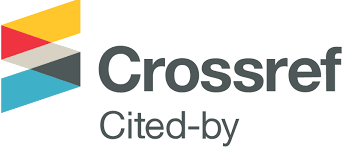Extended Abstract: Climate change and its consequences are one of the greatest challenges that humanity is currently facing, and consumption patterns play a very important role in this regard (European Environmental Agency (EEA), 2018). Social marketing can contribute to changing individual behaviors towards more sustainable ones (Kotler & Zaltman, 1971). Although there are different approaches to applying social marketing, one of the most commonly used to achieve pro-environmental behaviors is Community-Based Social Marketing (CBSM), as proposed byMckenzie-Mohr (2000). CBSM includes five steps: 1) selecting the behavior to impact; 2) identifying the barriers and benefits; 3) designing a strategy based on behavior-change tools; 4) piloting the strategy; and 5) evaluating the impact of the program. However, despite this clearly defined framework, many interventions that claim to follow social marketing for sustainability show inconsistencies in program design and implementation, which can make empirical evaluation of their effectiveness difficult. Therefore, more research is required to provide guidance on the design of these programs, which can help advance both implementation and empirical evaluation.
This study systematically investigates whether published social marketing studies follow the principles of CBSM, using as the basis of the analysis the benchmark criteria proposed byLynes, Whitney, and Murray (2014).
This systematic review is based on the PRISMA Statement. Databases selection included those where social marketing interventions are usually published (e.g., WoS & Scopus). Inclusion criteria: i) original research (no reviews/meta-analysis, conference papers, etc.), ii) studies published between 1995-2022, iii) English language, and iv) peer-reviewed. An individual search was conducted in each of the databases using keywords such as "environ*", "responsible", "behav*", "social marketing", "interv*", etc. Mendeley was used for managing references. The initial search yielded 1,213 studies, but only those studies including "social marketing", "environment", and "intervention" in the title, abstract, and keywords were included (WoS searches the "keywords plus" by default). This manual screening reduced the sample to 96. These studies were assessed according to the CBSM benchmark criteria proposed byLynes et al. (2014).
There has been a continuous growth in the number of published studies related to social marketing interventions and pro-environmental behavior between 1995 and 2022. Only 36% of these studies (35 out of 96) explicitly mentions the CBSM framework. This type of research is concentrated in countries such as: USA (32%), Australia (19%), UK (8.5%), Spain (4.2%) and Canada (4.2%) with minor application in other countries. Regarding the behavior selection (1st benchmark) only 40% identifies the target audience, around 60% is focused on non-divisible behaviors and 82% focus their efforts in less than six behaviors. Concerning the identification of barriers and benefits (2nd benchmark), over 69% analyses barriers/benefits of the behavioral change to the target group but only 6% of them explicitly distinguish between internal and external barriers/benefits. Only 58% are based on some theoretical framework. The most used theories are the Theory of Planned Behavior (TPB), the Theory of change (ToC), the Social Marketing Theory (SMT) or the Cognitive Dissonance Theory (CDT). Regarding the development of specific intervention strategies (3rd benchmark), the relative importance of each of behavior change tools is communication tools (85%), best-practice prompts (41%), best-practice (dis)incentive (38%), commitment tools (28%), visible norms (26%), convenience strategies (20%) and, less frequently, feedback (9%) and using well-know/respected people (8%). The implementation of a pilot study (4th benchmark) shows that 72% conduct a pilot study to compare with a baseline, 42% have a control group and make a random selection or assignment of participants. However, only 28% use unobtrusive methods to measure behavioral change. Most of the studies are based on self-reported data from surveys (53%), observational measurement of actual behavior (28%), group techniques (20%) and in-depth interviews (17%). Concerning the evaluation of the broadscale implementation of the intervention (5th benchmark), more than 60% do not measure the behavior before and after the implementation and only 27% provides evaluation data to provide feedback to community.
This research highlights the complexity of designing social marketing interventions to effectively achieve pro-environmental behaviors. Interventions must be specific, target specific audiences, be based on adequate theoretical frameworks to overcome barriers and promote benefits, design specific actions, conduct pilot studies, and evaluate the broad-scale implementation of the intervention. In light of this, there is a need for collaboration among different stakeholders and careful planning and implementation. This systematic review reveals the limited number of studies that are formally based on the CBSM framework, and within this set, most of the benchmarks are not fully integrated. Of special interest is the fact that almost half of the studies do not explicitly use any theoretical background to understand the barriers and/or benefits that individuals face related to pro-environmental behavior change. The results derived from this study are of great interest to both public and private institutions interested in developing social marketing interventions to promote environmentally sustainable behaviors.
Funding Statement
The author(s) received no financial support for the research, authorship, and/or publication of this article.
Conflict of Interest
The author(s) declared no potential conflicts of interest with respect to the research, authorship, and/or publication of this article.





